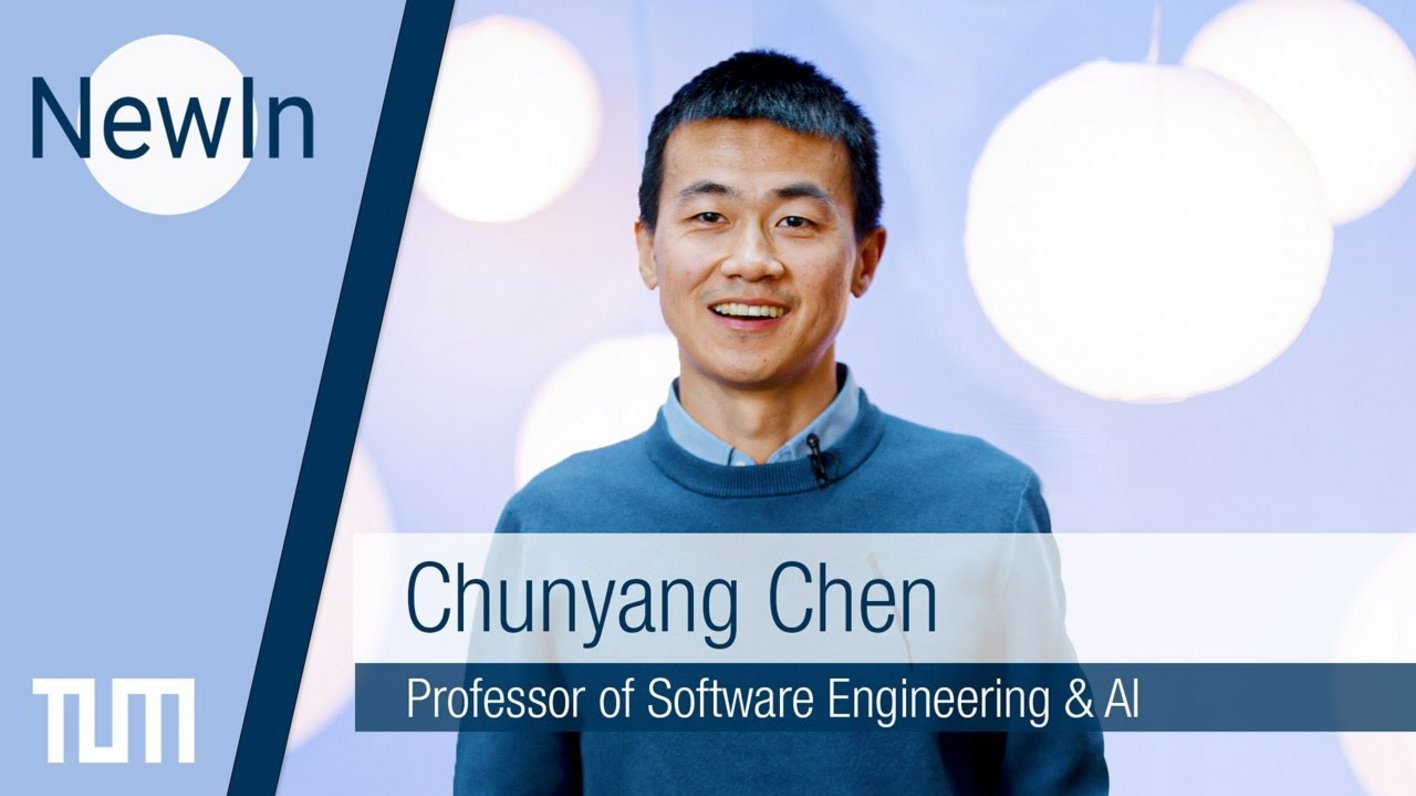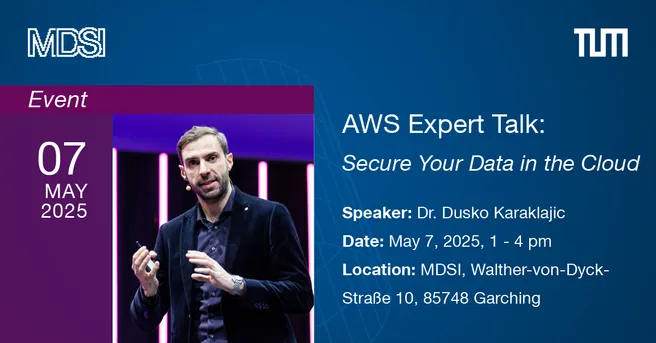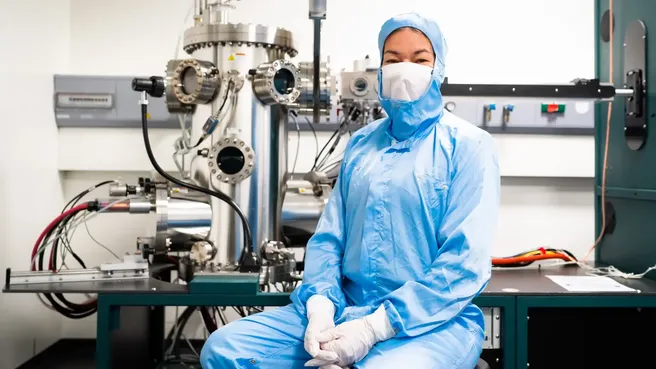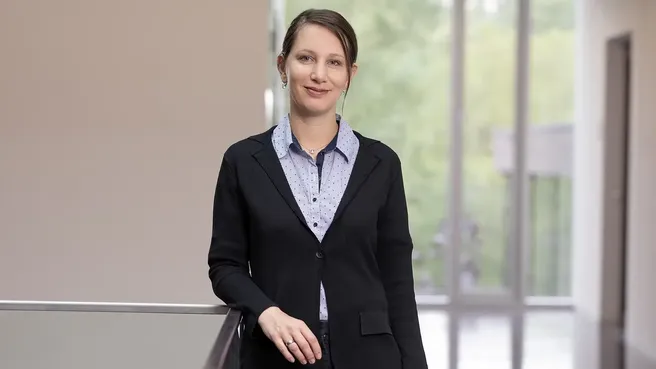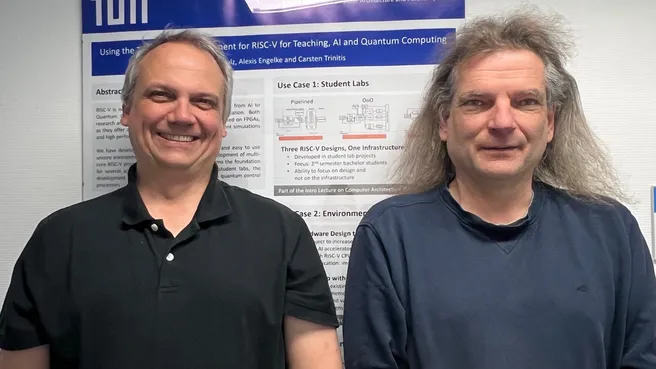NewIn 2024
These are our new professors
Since 2024, the TUM School of Computation, Information and Technology (CIT) at the Technical University of Munich (TUM) has 14 new professors. Here you can find out who they are and what they are researching.
Zeynep Akata
Professorship for Interpretable and Reliable Machine Learning, Department of Computer Science
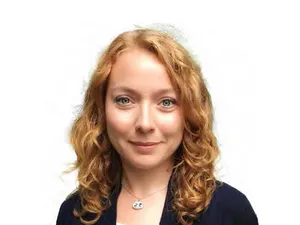
Zeynep Akata's research area is explainable machine learning. She focuses on the question of how the model's decisions can best be communicated to people. This requires working with data streams that are as comprehensible as possible for everyone. Her approach combines various methods of machine vision and learning, as well as natural language processing.
Zeynep Akata is Liesel Beckmann Distinguished Professor of Computer Science at TUM and Director of the Institute for Explainable Machine Learning at Helmholtz Munich. She completed her doctorate at the National Institute for Research in Digital Science and Technology (INRIA) Rhône-Alpes in France. As a postdoc, she worked at the Max Planck Institute for Informatics and at the University of California, Berkeley. She subsequently held an assistant professorship at the University of Amsterdam and then joined the University of Tübingen as a professor. She was awarded an ERC Starting Grant, among other things, and was in this year's Capital Top 40 under 40.
Hartwig Anzt
Chair of Computational Mathematics, Department of Computer Science

Hartwig Anzt conducts research on the development and optimization of numerical methods for efficient high-performance computing. One focus is on methods that require fewer computing resources and work faster. He is also working on techniques that make it possible to perform calculations in parallel and without strict synchronization. He also researches topics such as fault tolerance, energy efficiency and the use of modern computer architectures such as GPUs (graphics processing units). In addition to developing new algorithms, he tries to promote sustainable software development in academia and ensure a healthy software life cycle.
Hartwig Anzt studied and completed his doctorate at the Karlsruhe Institute of Technology (KIT). After a Postdoc at the University of Tennessee, he headed a Helmholtz Young Investigator Group at KIT. In 2022, he was appointed professor at the University of Tennessee and became director of the Innovative Computing Lab (ICL). He is the author of the open-source software package MAGMA-sparse and responsible for the mathematical software library Ginkgo, which is used worldwide in high-performance scientific computing. Hartwig Anzt was Principal Investigator in the Software Technology (ST) division of the US Exascale Computing Project (ECP). He is Principal Investigator in the EuroHPC project MICROCARD. He is also the elected Program Manager of the SIAM Activity Group on Supercomputing.
Berthold Bäuml
Professorship for Learning AI for Dextrous Robots, Department of Computer Engineering
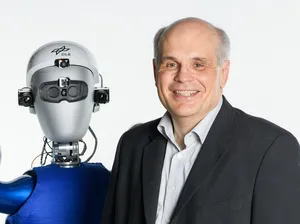
Berthold Bäuml's field of research is “autonomous learning AI”, i.e. deep (reinforcement) learning based on first principles and simulation models. His goal is to create intelligent humanoid robots that come close to human capabilities, especially in terms of dextrous manipulation with multi-finger hands.
Berthold Bäuml is head and founder of the joint research laboratory “Autonomous Learning Robots” with the Institute of Robotics and Mechatronics at the German Aerospace Center (DLR). His research has led to the development of one of the world's most advanced mobile humanoid robots, DLR Agile Justin, and he has received numerous awards at major international robotics conferences, such as the 2016 Best Cognitive Robotics Finalist at the IEEE International Conference on Robotics and Automation (ICRA), as well as much media attention.
Markus Becherer
Professorship for Chip-Based Magnetic Sensor Technology, Department of Electrical Engineering
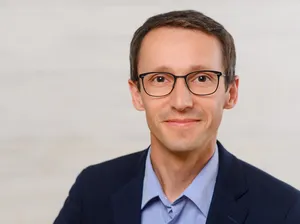
Markus Becherer conducts research on magnetic components for spin-based signal processing and sensor technology. One focus is on ferro- and ferrimagnetic materials, their structuring on the nanoscale and their electrical and optical characterization. The methods developed allow the device properties to be precisely adjusted.
Following his vocational training at Sick AG, he studied electrical engineering and information technology at TUM. He received his doctorate in engineering from TUM in 2011 and his habilitation in 2017. From 2017 to 2020 he was acting head of the Chair of Nanoelectronics and during this time also took over the management of ZEITlab, the Central Electronics and Information Technology Laboratory of the CIT.
Chunyang Chen
Chair of Software Engineering & AI, Department of Computer Science
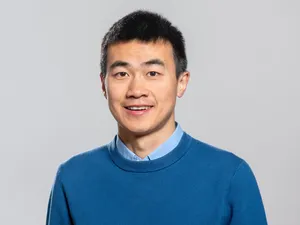
Chunyang Chen's research interests are mainly about automated software development, especially data-driven mobile app development. He is also interested in human-computer interaction and software security. His research is mainly in two directions: AI for software engineering, that is, AI-driven automated software development processes such as code generation and software testing. The other direction is software engineering for AI, i.e. facilitating the deployment of AI in real software and ensuring its accessibility, reliability or safety, for example.
Chunyang Chen studied software engineering during his doctorate at Nanyang Technological University, Singapore. He then worked as a lecturer, senior lecturer and adjunct professor at Monash University, Australia. His research has been recognized with the ACM SIGSOFT Early Career Researcher Award, the Facebook Research Award, four ACM SIGSOFT Distinguished Paper Awards, and several Best Paper/Demo Awards, among others.
NewIn: Prof. Chunyang Chen on the TUM Youtube Channel
You can find more articles and episodes in this section under NewIn: Meet our new professors.
Felix Dietrich
Professorship for Physics-enhanced Machine Learning, Department of Computer Science
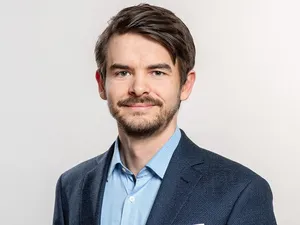
Felix Dietrich's research area is the analysis and development of numerical algorithms for machine learning. This includes algorithms that enable the simulation and analysis of complex, dynamic systems, making them more efficient and optimizing them. He focuses on random features, kernel methods and data-driven approximations of Koopman and Laplace operators.
Felix Dietrich studied Scientific Computing at the University of Applied Sciences Munich and the Royal Institute of Technology Stockholm. He received his master's and doctoral degrees in mathematics at TUM in the elite TopMath program. From 2017 to 2019 he was a postdoc in the USA at Johns Hopkins and Princeton University. He then returned to TUM to work as a postdoc at the Chair of Scientific Computing and headed his own DFG Emmy Noether Junior Research Group from 2022.
Can Dincer
Professorship of Sensors and Wearables for Healthcare, Department of Electrical Engineering
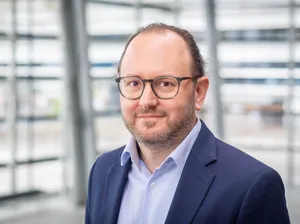
Can Dincer's research interest is in the development of bioanalytical materials, sensors or microsystems and their combination with data science and artificial intelligence for One-Health: human and animal health and environment. His focus is on disposable sensor technology for point-of-need and wearable applications.
He completed his studies in microsystems engineering at the University of Freiburg, where he also received his doctorate summa cum laude in 2016. He then worked as a visiting scientist at the Department of Bioengineering at Imperial College London, UK. He is an associate editor of the journal “Biosensors and Bioelectronics” (Elsevier) and a member of the editorial board of the journals “Advanced Sensor Research” (Wiley) and “The Innovation Materials” (Cell Press).
Alexander Fraser
Chair of Data Analytics & Statistics, Department of Computer Science
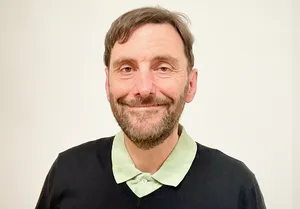
Alexander Fraser conducts research on machine learning approaches to translation, language modeling and multilingual natural language processing (NLP). His focus is on dealing with sparse data and the integration of linguistic and world knowledge in AI systems. His vision is to create large language models for all the world's languages that enable everyone to communicate in their native language.
Alexander Fraser received his PhD in computer science from the University of Southern California in 2007. He then taught at the University of Stuttgart and Ludwig-Maximilians-Universität München, where he was Professor Information and Language Processing from 2017. The European Research Council (ERC) funded his research with a Starting Grant, a Proof of Concept Grant and an Advanced Grant in 2024. He is a Principal Investigator of the Munich Center for Machine Learning and a Core Member of the Munich Data Science Institute.
Stephen Kobourov
Chair of Efficient Algorithms, Department of Computer Science
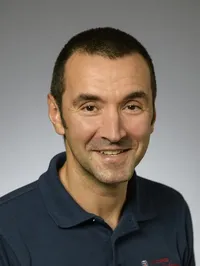
In theory there is no difference between theory and practice, but in practice there is. That's why Stephen Kobourov works on both theoretical and practical aspects of algorithms: from the design, analysis and implementation of efficient algorithms, to applications in information visualization, computational geometry and graph drawing. The U.S. National Science Foundation, the U.S. Office of Naval Research, and the U.S. Department of Agriculture have funded his research.
Stephen Kobourov received degrees in computer science and mathematics from Dartmouth College, and a MS and PhD in computer science from Johns Hopkins University. He was an assistant professor, associate professor and full professor at the University of Arizona, where he also served as Associate Director of the Data Science Institute. He was a Fulbright Scholar at the University of Botswana, a Distinguished Fulbright Chair at Charles University in Prague, and a Humboldt Fellow at the University of Tübingen.
Stephan Krusche
Professorship for Applied Education Technologies, Department of Computer Science
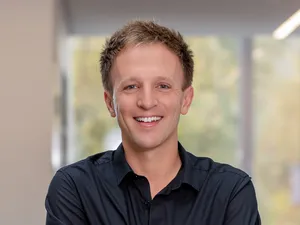
Stephan Krusche wants to improve education with technology, automation and AI. To this end, he focuses on developing innovative teaching methods and platforms. These are designed to increase student engagement, reduce teacher workload and promote personalized learning. He created the open-source learning and research platform Artemis, which is used in many courses at TUM to improve the learning experience. He is also committed to promoting women in STEM fields, and in 2024 he received the Angela Molitoris Diversity Award from TUM for his efforts.
Stephan Krusche developed a passion for mathematics at an early age and taught himself programming from a book. He studied computer science and earned his doctorate at TUM. He has received several teaching awards, including the Ars Legendi Award for outstanding achievements in teaching in 2020.
Lorenzo Masia
Chair of Intelligent Bio-Robotic Systems, Department of Computer Engineering
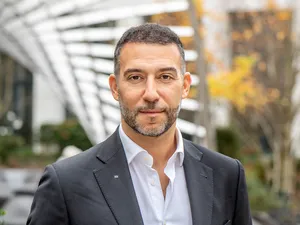
Lorenzo Masia's research focuses on soft, wearable robotics (exosuits). The use of textiles and lightweight, stable materials ensures that devices are comfortable to wear, adapt to the body's movements and thus integrate seamlessly. They are used in rehabilitation and sports and support muscle movements and improve human performance. The biggest challenge is to achieve optimal strength control and support while allowing comfort, flexibility and natural movement.
Lorenzo Masia is Deputy Director of the Munich Institute for Robotic and Machine Intelligence. He is a mechanical engineer whose career spans three continents: as a researcher at the Massachusetts Institute of Technology (MIT) and team leader at the Italian Institute of Technology, assistant professor at Nanyang Technological University in Singapore, associate professor at the University of Twente in the Netherlands and full professor at the University of Heidelberg. He has received five IEEE Best Paper Awards and was General Chair for the IEEE RAS BIOROB 2024 conference.
Ali Sunyaev
Chair of Information Infrastructures, Department of Computer Science
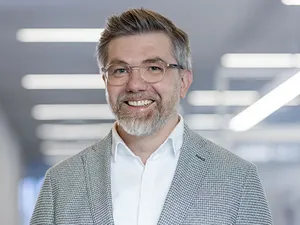
Ali Sunyaev's research considers the diverse usage contexts of digital technologies by investigating human behavior in relation to IT applications. Theory-driven design, computational methods and empirical research all play a critical role. His research focuses on secure and decentralized information systems for critical infrastructures, including cloud applications, blockchain solutions, medical data protection and trustworthy AI.
Ali Sunyaev has been Vice President at TUM since October 2024 and is responsible for the management and further development of the TUM Campus Heilbronn. Previously, he was Director of the Institute for Applied Informatics and Formal Description Methods (AIFB) and Professor at the Karlsruhe Institute of Technology (KIT), Professor at the University of Kassel and at the University of Cologne. He studied Computer Science at TUM and received his doctorate in Information Systems. As a visiting professor, he was at Harvard University and at the Keldysh Institute of Applied Mathematics (Russian Academy of Sciences).
Stefan Wagner
Chair of Software Engineering, Department of Computer Science
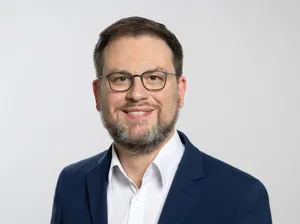
Stefan Wagner develops and evaluates techniques, methods, and tools that enable better development of high-quality software. His research interests span several areas, including software quality, human factors, AI-based software development, automotive software, AI-based systems, and empirical studies. He conducts practice-oriented research and cooperates with companies to improve the production of software.
Stefan Wagner was Professor of Empirical Software Engineering at the University of Stuttgart, where he served as Dean of Studies and speaker of the Artificial Intelligence Software Academy (AISA). He studied computer science in Augsburg and Edinburgh and psychology in Hagen. In 2007, he received his doctorate in computer science from TUM. He has published more than 130 peer-reviewed scientific articles and authored the book “Software Product Quality Control”. Also, he has received several best-paper awards at conferences.
Violetta Weger
Professorship for Applied Algebra, Department of Mathematics
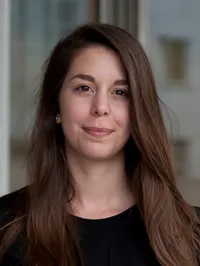
Violetta Weger's research area is coding-based cryptography. This intersection of coding theory and cryptography is one of the most important candidates for post-quantum cryptography. She works on the construction and security of such systems and researches new mathematical objects that can be used for these purposes.
Violetta Weger is Rudolf Mößbauer Tenure Track Assistant Professor at TUM and TUM IAS Fellow. She studied and received her doctorate in mathematics at the University of Zurich. From 2021 to 2022 she was a postdoc at University College Dublin, Ireland and at TUM with a National Science Foundation fellowship. From 2022 to 2024 she was a Marie Curie Fellow at TUM and at TU Eindhoven, Netherlands.
